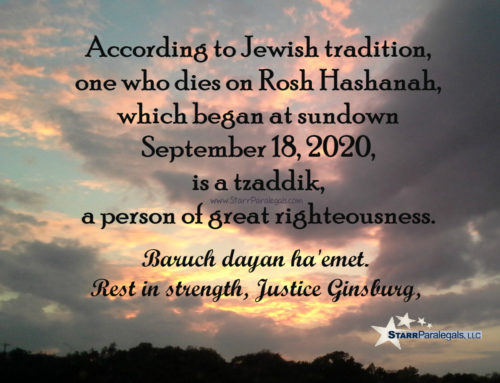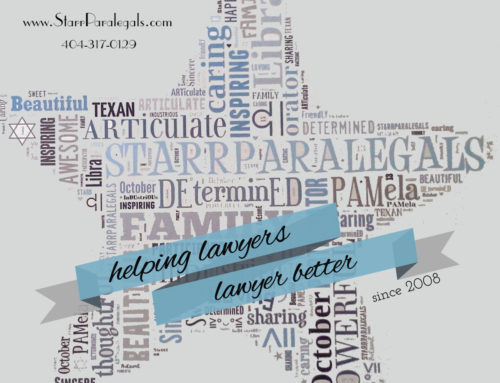I am a member of the NFPA Ethics Board. I’d like to think that means I actually know something about paralegals, ethics and UPL.
I recently found myself in an open forum defending my career of choice. The participants, mostly lawyers, were tripping over themselves trying to ‘splain (or were they trying to understand? Hmm.) the relationship between paralegals and UPL. For the uninitiated, UPL is the unlawful practice of law.
Attorneys practice law; paralegals support attorneys. If I’d wanted to practice law, I would have earned a law degree and sat for the bar.
As I write this, the debate is still raging. I finally shared the following on the forum:
On behalf of the non-lawyer legal service providers – specifically the paralegals – on the list …
This is how we make our living – either as part of the BigLaw machine or as freelancers. We take great pride in understanding the limitations that come with being “just a paralegal”. And we sometimes take offense when asked why we didn’t just become lawyers.
First, the ABA makes it very clear that we must operate under the supervision of an attorney … except in some states that regulate non-attorney service providers, such as California’s Legal Document Preparers who have limited, but approved, privileges to work directly with consumers as long as they meet the requirements set out by the state.
Someone suggested that paralegals can do everything EXCEPT appear in court. Well, that’s wrong. In some states, paralegals may make limited appearances under very specific circumstances. The list of what paralegals can’t (shouldn’t oughta) do is a bit longer.
At this time (and yes, I’ve done my research), there is not an all-governing definition of UPL. The ABA Model Rules provide some direction, and each bar has its own ideas. For the most part, any paralegal worthy of the moniker agrees that UPL includes:
- giving legal advice;
- accepting cases;
- setting fees;
- planning strategy;
- making legal decisions;
- taking depositions; and
- appearing in court.
In fact, in spite of the fact that my colleagues and I advertise that “we only work for attorneys”, we find ourselves ‘mini-Mirandizing’ potential clients because the general public keeps trying to sneak in. I can’t tell you how often I have to explain to people that if I were to answer their ‘simple question’, I would likely be giving legal advice and risk losing my livelihood.
As for the folks (non-lawyers offering legal services) advertising on Craigslist – look at the source. We do not claim ‘those’ people. They aren’t paralegals – if they were, they’d know better! They make us look bad and they are part of the reason we get so many of ‘those’ calls.








Leave A Comment